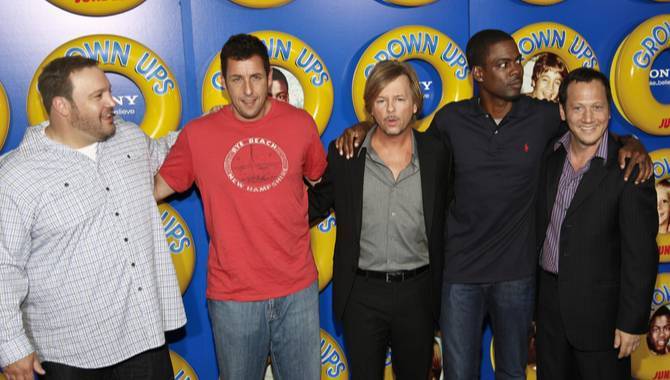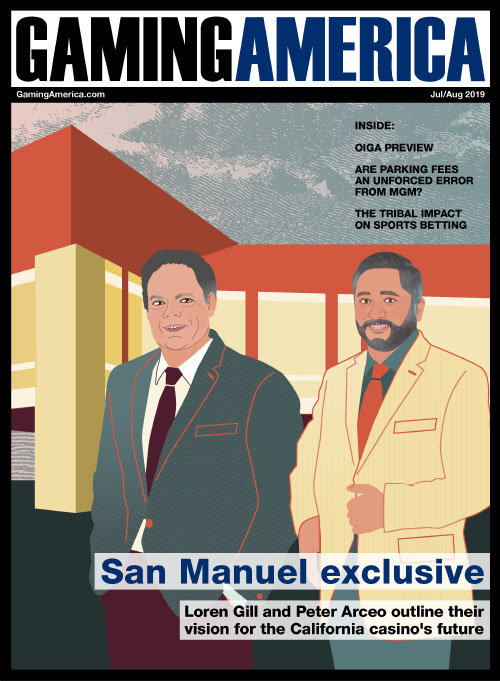
Adam Sandler and Rob Schneider are bad actors; or at least they are winners of the Golden Raspberry Award for Worst Actor.
Sandler in particular has claimed the title on multiple occasions for his work in Big Daddy, That’s My Boy and Just Go with It. That’s without mentioning Jack and Jill, for which Sandler picked up both the Worst Actor and Worst Actress awards in 2012 – the same year he won for Just Go with It. Quite a hat-trick.
DraftKings and FanDuel, on the other hand, are not bad actors, at least in the eyes of many. The daily fantasy sports (DFS) giants have made a riveting start to life in sports betting, dominatingthe New Jersey market while planning their expansion into new US territories. If there was an award for the most successful New Jersey sportsbook, they would be the only contenders.
Except the state of Illinois doesn’t seem to realize – or clearly define – what a bad actor actually is. As part of new Senate-approved sports betting legislation, the Prairie State’s bad-actor clause has excluded DraftKings and FanDuel, and any other online-only brand, from the market for the immediate 18-month period after its sports wagering launch.
Even if a digital firm partners with a land-based casino, it cannot use its own branding, although the 18-month period was at least reduced from the three years initially proposed. Governor J.B. Pritzker signed the bill into law in June, although the launch of sports betting in the state is thought to be some way off. That Illinois, a state with dwindling casino revenue, is expanding its gambling sector and at the same time legalizing sports betting, is wonderful news.
The way the state has gone about it however, has created far more issues than it has solved. In some ways, Illinois has followed the example of Tennessee, showing the will to approve sports betting, despite a number of compromises. Tennessee, for example, became the first state legally requiring operators to purchase official league data to settle in-play wagers. Illinois has done the same and perhaps deserves praise for defying the expectations of many predicting it would take far longer than it did.
In other ways though, Illinois has completely surpassed nearby Tennessee. Unlike Louisiana, which rejected the chance to approve sports betting under severely restricted circumstances, Illinois has imposed license fees ranging from $5m to $25m. The coup de grâce is its already infamous bad-actor clause.
When the Tennessee Sports Wagering Act was approved, Gaming America speculated whether there was an aspect of the state selling its soul. In Christopher Marlowe’s Elizabethan tragedy Doctor Faustus, the lead character makes a pact with dark forces, exchanging his soul for extraordinary powers. Has the Illinois Senate acted similarly to Marlowe’s anti-hero to reach a settlement?
DraftKings CEO Jason Robins, staying consistent to the approach discussed in the last edition of From the top, was typically forthright when reacting to the legislation on Twitter.
He proclaimed: “While it is good to see sports betting bills passed, excluding DraftKings and FanDuel is like passing a ride sharing bill that excludes Uber and Lyft. Very disappointing that Illinois customers will not have the best options available to them for 18 months.”
Far from stopping there, Robins continued: “Also, imagine if your entire competitive strategy was to lobby to keep the best products out of the market. How bad must you think your own product is? (I would tweet this to Greg Carlin but I don’t think he’s on Twitter.)”
In singling out Rush Street Interactive CEO Carlin, Robins made it abundantly clear he feels this is a case of protectionism, with DraftKings offering a superior product to Illinois’ Rivers Casino Des Plaines. Rivers is part-owned by Rush Street and both DraftKings and FanDuel even launched a $1m campaign to advertise against the bad-actor clause. Rivers and Rush Street will be two of the clause’s biggest beneficiaries.
DraftKings and FanDuel are considered bad actors due to their previous DFS operations in the state, after Illinois Attorney General Lisa Madigan declared DFS was equivalent to gambling. Crucially though, DFS’ illegality in Illinois has never been written into law and is simply Madigan’s opinion – an opinion which was challenged by both DraftKings and FanDuel. There were no Razzies handed out á la Sandler and Schneider.
As Michael Daly, US General Manager for affiliate giant Catena Media, told Gaming America, this raises another issue undermining the “tricky” situation in Illinois. “It’s hard for me to see one state say this is a bad actor if another highly recognised regulatory body [in New Jersey] has said these are not bad actors,” he explains. “This whole debate came up years ago with Stars Group after it was first prohibited from the US.
“It made amends to the US Government; it made corrections with New Jersey and eventually got approved by the regulator. The American process is exactly that; if you have something questionable or an offence to the government, you do your time and move forward.
“The bad actor clause in Illinois? I’m not sure it’s really clear it defines what makes certain companies bad actors. Is it protectionism? I don’t know. Usually, the American legal system provides details of what’s allowed and not allowed. At the moment, this seems murky to me.”
In other words, the scenario hardly represents the American Dream. No market should be akin to a golf tournament where a handicap system comes into play, nor a Formula One championship where Mercedes or Ferrari need to be pegged back for the sake of spectacle. Equally, companies or politicians clashing is one thing – writing anti-company bias into law is quite another.
No industry should be treated in such pre-historic fashion and no consumer should suffer the consequent lack of choice. This is something, much like the Department of Justice’s nonsensical reinterpretation of the Federal Wire Act, which may well be fixed with time. But, like with the Wire Act again, this is an example of yet more political meddling to the detriment of the US gaming sector.
There could be a valid argument in suggesting the likes of Louisiana are better off not regulating sports betting at all, rather than doing so and getting it all wrong. There are plenty of benefits to Illinois’ gambling expansion – not least a new casino being built in Chicago. But excluding the US’ two leading heavyweights of digital sports betting is certainly not one of them.
Who needs an Uber these days when you can wait 10 times as long for a taxi? Who needs DraftKings or FanDuel when you can place a wager with competitors statistically proven to be far less popular? Who needs to maximize state tax revenue to fund a $40bn public spending budget?
Not Illinois, apparently. While the US national anthem champions the land of the free, Illinois is no longer the land of the free market.

